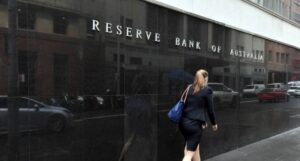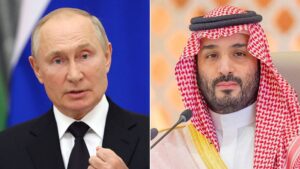Pan Gongsheng: From Currency Reserves to the Helm of China’s Central Bank
Pan Gongsheng, a prominent economist, is set to take on a new and even more powerful role in the Chinese economy as the governor of the People’s Bank of China (PBOC), the country’s central bank. The news was made official by China’s top legislature on 25th July 2023 to appoint the deputy governor as the new governor of PBOC. Having overseen China’s massive $3 trillion foreign currency reserves, he is now positioned to exert outsize policy influence over the financial system of the world’s second-largest economy.
1. Pan Gongsheng Background and Education
Pan Gongsheng’s journey to the pinnacle of China’s financial world began in 1963 in a small town Anqing, a town along the Yangtze River in Anhui Province. His acedemics are as follows –
- Bachelor’s degree in accounting at Zhejiang Metallurgical Economics College in 1980.
- Master’s degree in labour relations at Renmin University in 1987.
- Doctorate in economics and spent a year at Cambridge University from 1997 to 1998.
2. Early Career and Career Growth
Pan Gongsheng’s career gained momentum when he returned to China and held prominent positions at two of the country’s major banks: the Industrial and Commercial Bank of China and the Agricultural Bank of China. His tenure at these financial institutions saw significant improvements in operational efficiency.
3. Stabilising the Chinese Yuan Renminbi
As the leader of the State Administration of Foreign Exchange, Pan Gongsheng played a pivotal role in stabilising the Yuan Renminbi after a devaluation in August 2015. His swift actions, including imposing strict capital controls enforced by the police, curbed the outflow of capital and steadied the currency. However, this move also impacted the Yuan Renminbi’s international appeal and set a precedent for ongoing discussions about limiting American investments in China.
4. Appointed as Governor of PBOC
Pan Gongsheng’s appointment as governor of the People’s Bank of China is a testament to his competence and technical expertise. He doesn’t seem to have strong political backing from higher-ups, which makes his rise to this powerful position even more remarkable.
5. Challenges Ahead
Taking the reins of the central bank at a delicate time, Pan Gongsheng faces several significant challenges. China’s post-pandemic recovery is facing obstacles, and the country’s banking system is grappling with bad loans to real estate developers and local governments. Moreover, the value of the renminbi is nearing its lowest levels in 15 years, leading to concerns among foreign investors and encouraging domestic investors to seek opportunities elsewhere.
6. Policy Influence
Pan Gongsheng’s unique position as both the governor and Communist Party secretary of the central bank grants him significant policy influence over China’s financial system. This consolidated leadership hasn’t been seen in the last five years, making him a key figure in shaping the nation’s economic policies and decisions.
8. Surviving in a Turbulent Environment
Given the current wave of corruption investigations in China’s financial circles, Pan Gongsheng’s ability to navigate his career without legal trouble is commendable. The State Administration of Foreign Exchange has faced its share of challenges and controversies over the years, making his achievement in maintaining a clean record noteworthy.
Since his appointment the Chinese Yuan is showing strength against the other global currencies.
Conclusion
Pan Gongsheng’s ascent from overseeing China’s foreign currency reserves to becoming the governor of the People’s Bank of China is a testament to his competence, dedication, and meticulous attention to detail. As he takes on this influential role, he faces a complex economic landscape, but his technical expertise and experience may prove instrumental in steering the Chinese economy through challenging times. With Pan Gongsheng at the helm, China’s central bank enters a new era, and the world will closely observe the policies and decisions that will shape the country’s financial future.



